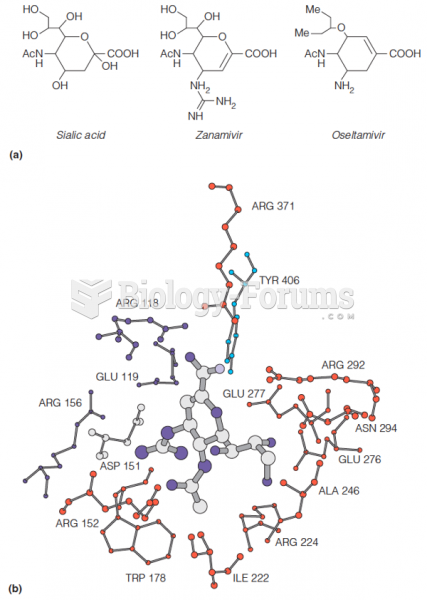|
|
|
By definition, when a medication is administered intravenously, its bioavailability is 100%.
There can actually be a 25-hour time difference between certain locations in the world. The International Date Line passes between the islands of Samoa and American Samoa. It is not a straight line, but "zig-zags" around various island chains. Therefore, Samoa and nearby islands have one date, while American Samoa and nearby islands are one day behind. Daylight saving time is used in some islands, but not in others—further shifting the hours out of sync with natural time.
The average person is easily confused by the terms pharmaceutics and pharmacology, thinking they are one and the same. Whereas pharmaceutics is the science of preparing and dispensing drugs (otherwise known as the science of pharmacy), pharmacology is the study of medications.
The first war in which wide-scale use of anesthetics occurred was the Civil War, and 80% of all wounds were in the extremities.
Hip fractures are the most serious consequences of osteoporosis. The incidence of hip fractures increases with each decade among patients in their 60s to patients in their 90s for both women and men of all populations. Men and women older than 80 years of age show the highest incidence of hip fractures.
 With tough economic times, a lot of people have lost their jobs—and their homes. If this happens, ...
With tough economic times, a lot of people have lost their jobs—and their homes. If this happens, ...
 All fuel injectors should make the same sound with the engine running at idle speed. A lack of sound ...
All fuel injectors should make the same sound with the engine running at idle speed. A lack of sound ...





